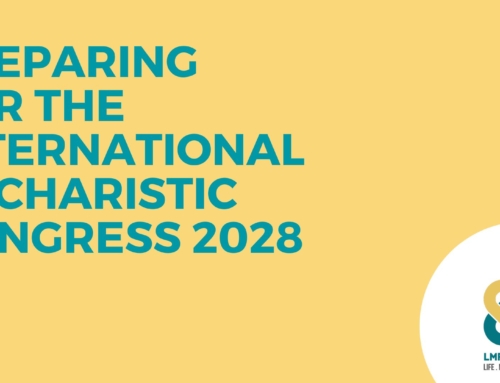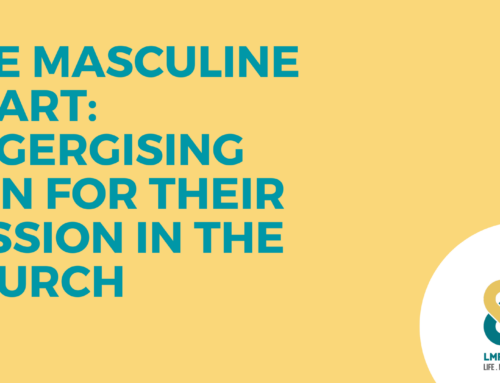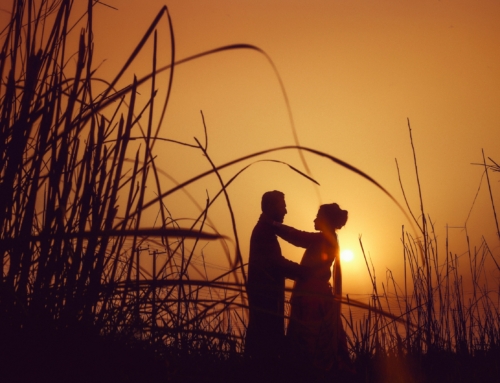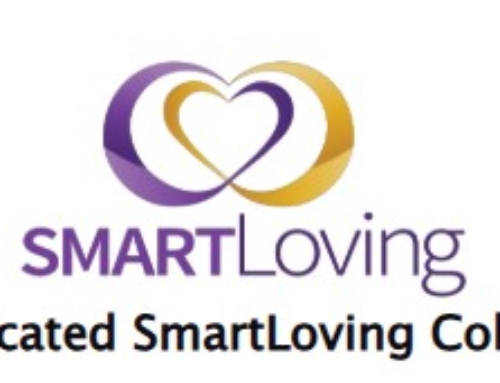
Karen Doyle
Biography
Karen Doyle is the founding director of Choicez Media, Australia’s largest provider of values and faith-based resources for the education sector in the areas of relationships and sexuality formation. She is a popular speaker at conferences around the world and a specialist in empowering men and women to uncover and live their potential.
Karen began her professional journey in nursing before commencing post-graduate work in Theology in Marriage and Family Studies. This study deepened her awareness of the impact of issues such as pornography and how it shapes individuals, relationships and wider society. She is a qualified Family Life Educator and the author of a number of books, including The Problem with Pornography.
For more than two decades Karen has designed and developed extensive curriculum programs used by hundreds of schools and thousands of individuals across Australia and around the world. Most recently, Karen has developed the Live Life To The Full program in response to Federal Government mandates requiring the teaching of Consent and Respectful Relationships in every Australian school.
Karen has been involved in a number of government inquiries into the harmful effects of pornography and round table inquiries into violence against women.
The modern education environment presents teachers, parents and legislators with unique challenges and opportunities. The rapid growth of technology as well as the impact of social media and pornography are having historically unprecedented effects upon young people.
Karen Doyle is a leader at the forefront of these issues in the educational context. She works closely with senior leaders at the highest levels of education around the world to help young people, families and teachers navigate this complex and rapidly changing environment. In this talk Karen will explore the impact of pornography as a sex education curriculum and how teachers in schools can address and support students and parents through comprehensive values based consent education.
Transcript
We were at an international life and love conference in the Philippines and there was a really beautiful woman who wanted to introduce us, and she was very excited, and she got up went totally off script and she started with Jonathan and Karen Doyle are Australia’s foremost educators in sex and they make their own DVDs. So, a few thousand people are like okay this is going to be an interesting session.
So, anything that’s not that introduction is a good introduction. In all seriousness it’s such an honour to be here and I just want to honour Byron and Francine Pirola for the amazing work that they do and their service and contribution to the life of the church and we’re all very grateful for this event.
It really is an honour to be here today, to share in this collective conversation.
Each presenter today has provided a different angle on the harms of pornography. My angle today is in education and formation specifically of young people. Before I dive into the content I would like to give you an image.This image is the image of a river and a riverbank. We all stand at a different point on the riverbank.
This morning the talks have focused more downstream, looking at crisis management, and first aid for people who have experienced pornography addiction, or people who’ve been associated with people who have a pornography addiction.
We have spent some time upstream, exploring some of the currents and the driving forces that predispose people to this compulsive behaviour. The group of impact talks in this session focus more upstream. Looking at prevention, education and formation. This is absolutely crucial; how do we catch people before they are caught in the current of pornography? How do we support the formation and education of people so they do not get caught in the grip of pornography?
Over the past 25 years Jonathan and I have had the privilege of serving teachers, parents and students in sound sexuality and relationships formation and education. When we were starting out Jonathan was invited to give the opening keynote at the Sexual Integrity forum held a Parliament House alongside Dr Mary Anne Layden. It was a wonderful event, similar to what we are engaging in today. I was struck by something that Dr Layden said in her keynote. She was a psychotherapist in the USA who primarily dealt with victims and perforators of sexual violence. She made an interesting point and its one that I hope to link with the image of the riverbank. Quite sometime into her career she realised that she was tired of pulling out the victims of sexual assault. She was tired of the damage she saw downstream. So, she decided to take her work upstream, to see how can she prevent these things from happening.
And this is where I want us to spend some time now.
I would like to start by sharing two stories, both are from our work in schools many years ago. The first story was from a school that Jonathan was called into where a year 10 boy had raped his younger girlfriend and that had become a legal issue. Jonathan had been brought in to crisis manage some of the mindsets that existed in that grade 10 cohort. He was sitting with the principal and the father of this boy, and the father turned to him and said: “Isn’t this just what boys do?” This father had given his son pornography to teach him how to have sex, and this boy was then acting out those scripts of pornography in his relationship.
The second story is of a young woman, Jonathan had finished speaking and often people want to talk to those that have spoken and a young girl was hanging back. Eventually she comes forward and says to him. “I really liked your talk” and Jonathan said, “That’s lovely what did you like about it?” She said, “I loved the section on pornography” and when he asked her why she started to get emotional and then she shared, “I fight with my parents all the time I recently moved in with my boyfriend and most nights of the week he sits me down and makes me watch hardcore pornography and then he gets me to act out what we’ve just watched.” With tears in her eyes she said to Jonathan these three words: “Is that normal?… Is that normal?”
Two kids who went through Catholic schools in grade 10 and 11 and they’d never actually heard a compelling vision for human sexuality that would equip them for those moments. To make better choices, to understand their incredible dignity and worth as human beings and to navigate consent and boundaries.
We have to do better. Jonathan and I have served Catholic Education now for 20 years. We now consult at a high level to Catholic Education Offices around the country on these topics.
I think that we need to be doing a lot better.
Consent is the buzzword of the year. You see it at the movies, it’s on the doors in the toilets, it is everywhere. It is important but I’d like to ask the question today WHY? Why the obsession with consent? Why the urgency? The government has gone so far as to mandate consent education from K through to 12 in every school in Australia now consent must be taught.
The government is pouring millions and millions of dollars over 5 years. 76 million dollars is going into consent education over 5 years in this country. But is anybody asking the question why? I think that we are failing to address the big fat elephant in the room.
We know that consent is an issue, we see it in the news every day. The papers are peppered with stories of varying violations of consent. But is anyone asking why are these violations of consent happening?
I would be as bold as to suggest that all paths lead back to the topic that we’re talking about today. The reason we need consent education is because of the impact of pornography.
It is the sex education curriculum of our time. Young people are not just learning about sex, they are seeing sex, and they are seeing the most depraved, aggressive, violent, repulsive acts. Not just once but multiple, multiple times.
This is shaping their neural pathways in deeply damaging ways.
There’s a beautiful line in Song of Songs that says “Do not awaken love until it so desires.” It is why the Catholic Church has such beautiful guidelines about the age-appropriate time to introduce concept of sexuality and morality.
Statistically we know that close to 100% of children have seen pornography by the age of 12. This is before they’ve hit puberty. Even before their actual sexual awakening has happened, they’ve been hit with these perverse images. They are learning toxic and deeply damaging messages at the youngest age about sex, the body and a two to treat others.
When Jonathan and I began this work, we started to raise the red flag on the impact of pornography. Most people didn’t want to know about it, they turned a blind eye saying things like; boys will be boys, what happens in the private has no impact in the public domain.
But the time has come to stand up and say well we told you so. We have hit a crisis point. We are now living through a pandemic of pornography and if we do not help out young people we will continue to see these violations of consent and very broken people and relationships.
In business we say “Never let a good crisis go to waste”.
We must begin by acknowledging the crisis we are in but we must also recognise the incredible opportunity that we have. My husband has many great sayings my favourite is that the Church has the best product in the world, with the worst marketing department.
We forget that we actually have so much to say on these topics. Part of my work over the last two years has been to develop a Catholic consent, respectful relationships program from K-12. I’ve spent a lot of time reviewing the material that the government’s putting into the schools. I think at best it teaches the ABC of consent, but it’s shockingly lacking, because unless we’re providing young people, parents, and teachers with a rich formation in a Catholic anthropology and understanding of the person then we are failing them terribly. So, I’d like to take you through five quick points on a way forward from my experience working in this area.
Firstly, I’d like to suggest that we need a thoughtfully considered and strategic formation program for leaders and educators.
We did a recent survey and 79% of Catholic teachers say they have had little to no formation in how to address these topics: pornography, relationships and sexuality in the classroom. This is kind of scary because they have to teach it, they’re mandated to teach it. They are lacking that formation. Many teachers int he schools say they feel unsupported by their Catholic education Offices.
The second challenge facing teachers is they are afraid of what they can and what they can’t say.
So, part of developing a thoughtfully considered strategic formation program is that it is crucial to give teachers the skills, the language, the formation to speak into these issues in the classroom. That they would be formed in a Catholic understanding and then they would know what to say.
Over the past two years we have developed a comprehensive teacher formation course. It is our hope that this will be credited by Catholic education offices and be a requirement for any teacher teaching consent, relationships and sexuality in Catholic school. This course not only gives guidelines for teachers but it presents a Catholic anthropology and the Catholic perspective on these topics.
The third point is to pour a lot into character education of young people. It’s no longer a case of if they’re going to be exposed it’s only a case of when. We need to do much better at equipping our young people to navigate those waters and to openly have these conversations.
So, we do a lot in the space of puberty education, my youngest daughter was thoroughly mortified when she finally realized a couple years ago what we do for a living. She says why can’t you get a real job? This is so embarrassing. But in our house these conversations have become common place. We’re editing a reproduction video the other day and they’re walking through and it is on the screen and they’re like oh we’re doing that again.
We need to normalise some of these conversations for our young people. We need to throw a lot at character virtues-based formation and education. Easier today Father spoke about virtues and the importance of that because we need to equip them.
My fourth point on how we can find a way forward is to invest in resources that are approved and contain a rich narrative. When pornography is so strong, the pull of it is so strong, so we need to creatively, strategically think about how we can create and communicate a counter narrative that is going to be attractive to young people. Our Live life to the full schools program does this. It takes virtues and applies them to relationships and sexual decision making.
My experience accompanying young men and women for whom this is an issue, is that they lose their faith and their hope that relationships could be fulfilling, or lead to their flourishing. There is a profound lack of hope and so they settle for what they’re being exposed to. So, we need to stand up we need to say there is so much more. Sexuality is a beautiful gift, we need to teach them that, we need to educate them in virtue. And create an attractive vision for what it means to be human and how to relate in relationship that resonates with the human spirit and leads to their flourishing.
My final point is prayer and persistence.
We cannot underestimate the power of pornography in terms of the spiritual battle that we’re in. We can’t lose sight of the spiritual dimension of this topic. The enemy goes right to the heart of what it means to be human, created in God’s image and likeness when he uses pornography, and he attacks the image of God.
So, if we put our hand to the plough in this area, we must be cultivating a rich interior life of prayer. We must have that support around us. It is so important.
At the star of this talk I mentioned the sexual Integrity forum that Jonathan and I attended 19 years ago.
I recall leaving that forum, at that stage we hadn’t had any children. We were only married a few years, and I was thoroughly traumatized by everything I had heard that day. Even though I had been working in this space the revelations over this days had been left level. I was overwhelmed by the size and impact and wondered if we could ever make a difference. I remember waking up at about 2:00 a.m. after a dream and the quote lingered in my head. “All we need for evil to flourish is for good men and women to do nothing.”
So, I really want to encourage you, wherever you stand on that riverbank, find your voice, understand your sphere of influence and think creatively about what you are uniquely being called to do. Because in this room all of us have a different role to play. All of us will be called to contribute in a particular way. We all need to understand what that unique contribution will be. Thank you.
Three main points from this talk:
Prevention and Education Over Crisis Management: Karen Doyle emphasizes the importance of proactive education and formation for young people regarding human sexuality. Rather than focusing solely on crisis management or addressing issues after they occur (like pornography addiction), she advocates for upstream prevention strategies that equip youth with the knowledge and values needed to make informed choices.
The Impact of Pornography: Karen Doyle highlights pornography as a significant factor affecting young people's understanding of sexuality and consent. She argues that the pervasive nature of pornography shapes unhealthy views and behaviours, leading to a crisis in understanding consent and healthy relationships. This underscores the need for comprehensive education that goes beyond basic consent teaching.
Holistic Formation and Resources: Karen Doyle calls for a strategic approach to teacher formation and character education, stressing that educators need proper training to discuss these topics openly. She advocates for providing rich, narrative-driven resources that communicate a positive view of sexuality, alongside a focus on character virtues to counteract the damaging effects of pornography and foster healthy relationships.





